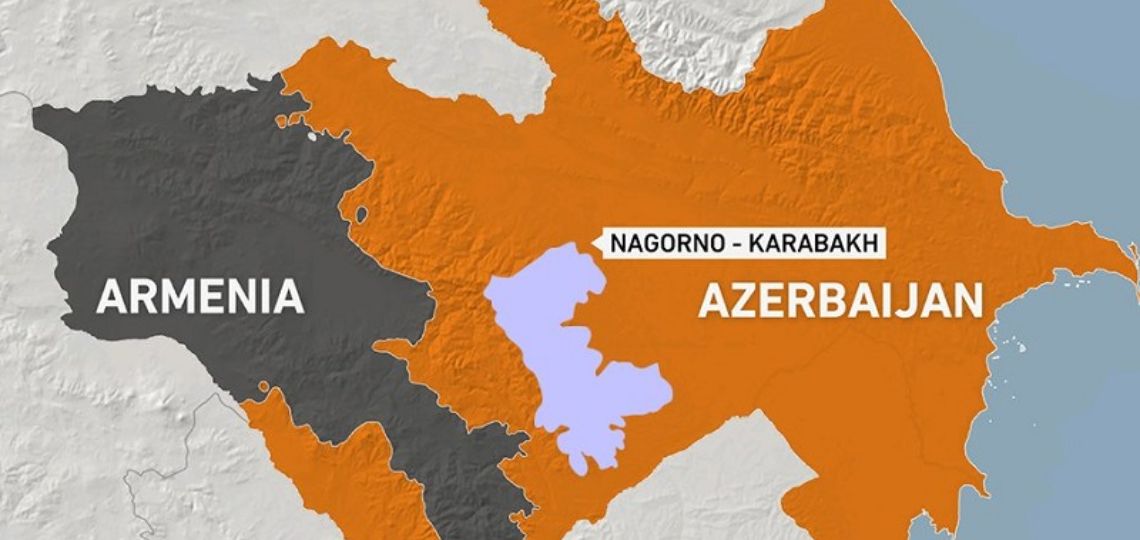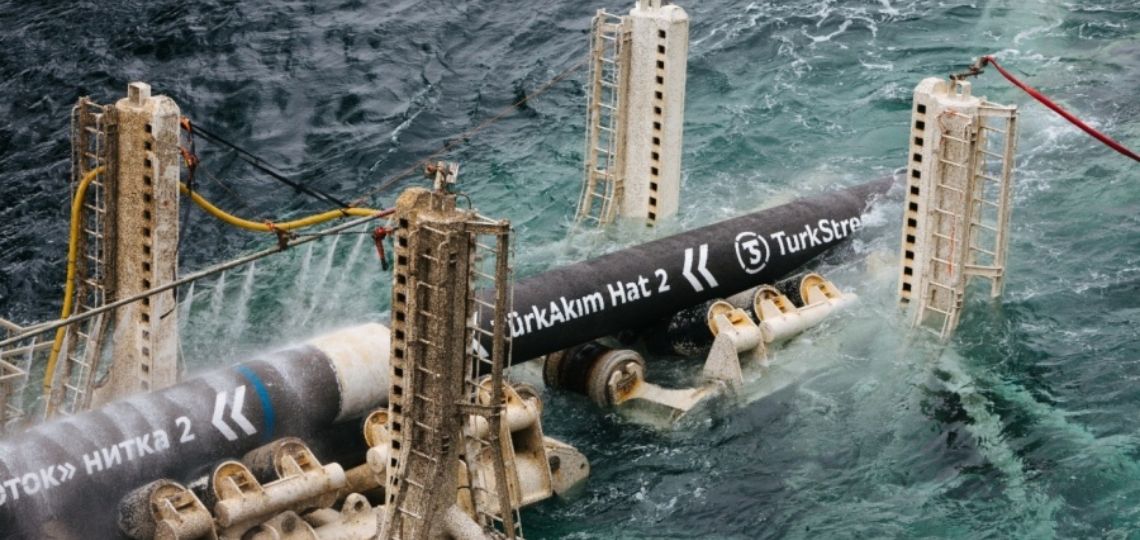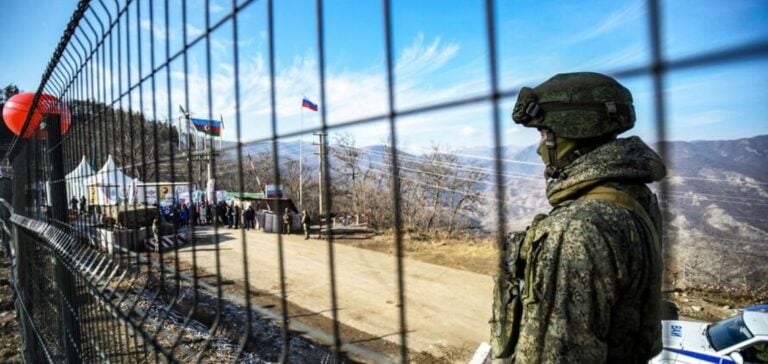Nagorno-Karabakh is once again in the grip of war. This disputed region is the scene of violent clashes between Armenia and Azerbaijan. According to official figures, more than 800 people lost their lives on the Armenian side, mainly soldiers. On the Azerbaijani side, the government has so far refused to publish any casualty figures.
Nagorno-Karaback: the region of discord
Historically, this conflict dates back to Stalin’s decision in the early 1920s to include Armenian minorities in Azerbaijani territory. The consequence of this choice was to fuel national hatreds once the Soviet Union had disappeared. In 1994, the Armenian minority in Nagorno-Karabakh expelled the Baku authorities with the support of Yerevan. Since then, the two countries have regularly engaged in armed clashes without finding a definitive solution to the conflict.
The war that began on September 27 nevertheless marked an important turning point in the history of the conflict. Russia, the traditional mediator, is currently unable to impose a lasting ceasefire. The same applies to the Minsk Group, made up of Russia, the United States and France. This turnaround can be explained by the new role Turkey is playing in the region.
Supported by Baku, this is the first time the latter has become directly involved in the conflict. Ankara supplies its ally with military equipment and provides fighting units from Syria. This direct commitment is largely explained by energy considerations.
This is a major change, as in previous conflicts, energy was only considered as a consequence of the conflict. Armed clashes could threaten energy supplies in the region. Today, however, energy rivalries are no longer a consequence, but in fact the main cause of conflict. Indeed, we cannot understand Turkey’s involvement and Russia’s weakening without mentioning the changing energy balance of power.

Energy at the heart of developments in the Nagorno-Karabakh conflict
The changing nature of the conflict in Nagorno-Karabakh is justified by a major shift in the region’s energy balance. In recent years, Azerbaijan has established itself as a key player in gas supplies to Turkey. The start-up of the Shah Deniz II gas project in 2018 has doubled Azerbaijan’s exports. Since last year, the country has supplied more than 9 billion cubic meters (bcm) of gas to Turkey.
This year, Baku even became Ankara’s leading gas supplier, ahead of Moscow. This development is all the more important as it is accompanied by a weakening of Russia’s position on the transit issue. The inauguration of the TANAP trans-Anatolian pipeline in 2017 has enabled Azerbaijan to bypass Russia as a transit country. The same applies to the country’s oil exports.
By passing through Georgia, this pipeline gives the Ankara-Baku axis greater room for maneuver vis-à-vis Moscow. In this context, Turkish military support for Azerbaijan is easy to understand. Sometimes passing just a few kilometers from the Armenian border, TANAP is vulnerable to attacks from Yerevan. Ankara is therefore turning the Nagorno-Karabakh conflict into a real energy security issue for the country.
Energy at the heart of rivalries between Moscow and Ankara
In addition to security of supply, the Turkish intervention can also be interpreted in terms of Russian-Turkish relations. The Nagorno-Karabakh conflict comes just a few months before the renegotiation of gas contracts with Gazprom. For Ankara, this is a key factor in lowering the price of gas for Turkish consumers. In December 2021, more than 8 bcm will be renegotiated with the Russian company.
However, the contracts signed with Gazprom were signed in the 80s and 90s under radically different conditions than today. Being long-term and indexed to the price of oil, these contracts no longer correspond to market prices. It is now estimated that Turkey pays 20% more for gas from Russia than Europe. Under these conditions, Ankara would like to renegotiate contracts with Russia that are more in line with spot market prices.
Turkey has therefore embarked on a policy of diversifying its supplies, notably towards Azerbaijan and LNG. Gazprom has seen its market share plummet from 50% in 2017 to 30% today. In fact, relations with Baku have become a key element in Ankara’s game with Moscow. Any weakening of Azerbaijan would therefore mean a weakening of Turkey’s position at the negotiating table.
This support is all the more important as Turkey remains dependent on gas imports, at least in the short term. The giant deposit discovered in the Black Sea will not be operational until 2023 at the earliest. As a result, Azerbaijan will remain a key ally until the field comes on stream. Nevertheless, this discovery in the Black Sea considerably strengthens Ankara’s position in the forthcoming negotiations with Moscow.

Behind the conflict, the ambition of a Turkish gas hub
One of the key issues in the renegotiation of Russian-Turkish gas contracts will be to put an end to destination clauses. These clauses prohibit the buyer from reselling unused gas on other markets. This ban is particularly problematic for Ankara, which aims to become a veritable gas hub in the region.
To achieve this goal, Turkey can count on a number of assets. Firstly, it is a secure transit country for Russian gas to Europe. Inaugurated at the end of 2019, TurkStream can supply the continent with up to 31.5 bcm of gas each year. For the moment, this pipeline is only connected to Europe via Bulgaria, but an extension to Greece is planned.
This would give TurkStream the capacity to supply the countries of Southern and Eastern Europe. This route is all the more important for Moscow as its North Stream 2 project now appears compromised. Moreover, transit through Ukraine and Poland is made difficult by geopolitical tensions. Turkey therefore represents an essential supply route for Moscow, giving Ankara considerable influence in the future.
Turkey is also involved in the TAP project, the trans-Adriatic gas pipeline linking Azerbaijan to Italy. In fact, it’s a new gas pipeline scheduled to be operational next month, linked to the Trans-Anatolian Pipeline (TANAP). Ankara’s aim here is to connect the European market with the producer countries of Central Asia, primarily Turkmenistan. With Nagorno-Karabakh just around the corner, Turkey cannot afford to abandon its Azerbaijani ally.
Moreover, the ambition to be a hub explains Ankara’s head-on opposition to the East Med project linking Israel to Greece. The aim of the project is to supply gas from the Mediterranean, and possibly later from the Middle East, bypassing Turkey. Libya, whose territorial waters straddle the pipeline, is a key country for Ankara. As in Nagorno-Karabakh, Turkish intervention in Libya is largely explained by energy issues.
The ambition to be a gas hub between Asia and Europe therefore largely determines Turkish policy in its regional environment. Located close to TANAP, Nagorno-Karabakh has thus become a major issue for the country. As a result, energy is no longer just a consequence, but the main cause of the current conflict.





















